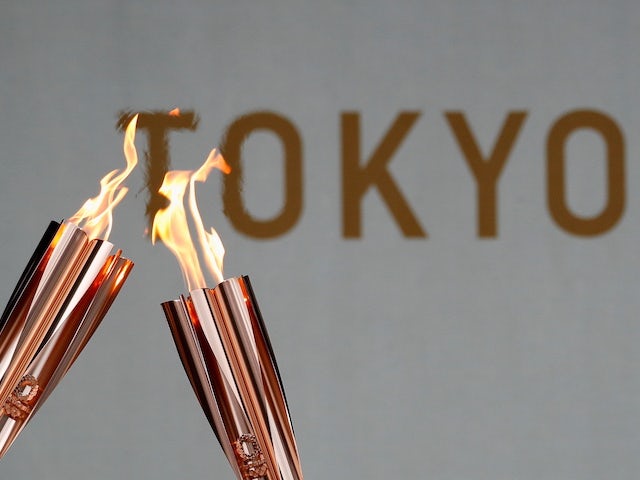Visually-impaired judo star Chris Skelley says the sport provided the "one shining light" in his life during the devastating deterioration of his eyesight.
World number one Skelley is preparing for his second shot at a Paralympic medal, having been named in Great Britain's four-man judo squad for Tokyo after narrowly missing out on a podium place at Rio 2016.
He has lived with genetic condition ocular albinism since birth but a decline in his vision at the age of 17 forced him to abandon a potential career as a mechanic.
I am pleased to announce that I have qualified and selected for my second Paralympic Games in Tokyo! Thank you to @BritishJudo , @uk_sport , @TNLUK , @SimkinMA_GBWS1 , all my team mates at the National centre (1/2) pic.twitter.com/prGWfWcHTn — Christopher Skelley (@ChristopherSke2) July 22, 2021
Around a decade on, the 27-year-old, who now requires sunglasses, special lenses and is learning to use a cane, admits discovering his love of the Japanese martial art helped him overcome the distressing news.
"It was a very tough, dark period in my life to have everything taken away from you, out of your hands," he told the PA news agency.
"It wasn't an easy experience to have, there were a lot of tears, a lot of question marks, not understanding what happened to me, and the one shining light in my life, the one star in a very dark period in my life, was judo.
"I think judo for me was a release, an experience where I could just go and forget what was happening in the outside world. I escaped in that world.
"I also had amazing support; amazing club coaches, they really helped me, and amazing family as well. If I didn't have them, I think I would be in a very different position.
33 days to go 🥋🇯🇵#ImpossibleToIgnore pic.twitter.com/IjNmsIldoo — ParalympicsGB (@ParalympicsGB) July 22, 2021
"It's very tough but there are other people who are struggling more out there and you've just got to be grateful for what you've got and just live your life as best as possible."
Skelley, who will be joined in Japan by fellow judoka Elliot Stewart, Jack Hodgson and Daniel Powell, has excelled in the sport, becoming European champion in 2017 before securing his current spot at the top of the world rankings in the -100kg category.
Those achievements followed a narrow bronze-medal match defeat to Cuba's Yordani Fernandez Sastre on his Paralympic debut five years ago.
His eventual fifth-place finish in Brazil is fuelling his desire for success this summer.
"It was the best experience, my first Games, I've never experienced anything like it," he said.
"I couldn't tell you the amount of energy that was going through me at the time, the nerves, the sickness.
"I was gutted, I'll be honest, that I didn't get a medal. That really did hurt me.
"It's a fire that's in my belly, ready to go when I get to Tokyo. It really does motivate you knowing you've come so close."
While Skelley did not bring back a medal from Brazil, he did return with the love of his life.
I am very happy to announce that Louise has accept my hand in marriage!! She is a wonderful lady who I am very lucky to have in my life! I can't wait to make more amazing mermories together ❤️❤️❤️ #askattheritz #bestweekendever pic.twitter.com/B1RXx0jaJd — Christopher Skelley (@ChristopherSke2) September 6, 2020
He and wheelchair tennis player Louise Hunt, who met in the build-up to Rio and bonded on the return flight, are set to marry next year having become engaged in September.
"We just started chatting and never looked back," said Skelley.
"It's really good to have your fiancée understand what you have to do, she's a sportsperson herself, and she does motivate you.
"She's also very good at telling me to turn off sometimes because I am quite judo-mad and focused on what I need to do and I over-train sometimes, so she's the voice of reason in my head."








